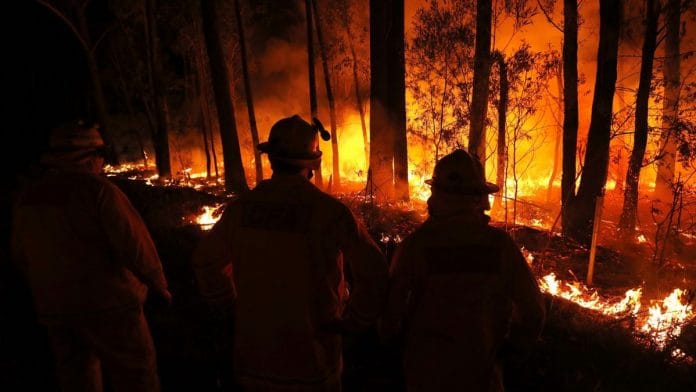New Delhi: The raging bushfires in Australia could become routine unless the world pushes for radical curbs on emissions of the greenhouse gases driving global warming, warn climate scientists.
According to Reuters, a review of 57 scientific papers, published since 2013, indicates a clear linkage between climate change and Australia’s increasing vulnerability to bushfires. Climate Impacts Research at Britain’s Met Office Hadley Centre conducted the review.
What does the review say?
“The review found that climate change had led to an increase in the frequency and severity of what scientists call ‘fire weather’ — periods with a high fire risk due to some combination of hotter temperatures, low humidity, low rainfall and strong winds,” noted Reuters.
Such fires have not been limited to Australia but have occurred on the west coast of US and Canada and in the Amazon, Siberia and Southern Europe.
According to the review, the “fire weather seasons have lengthened across about 25% of the Earth’s vegetated surface”, which have resulted in an increase in the mean length of the fire weather season by 20 per cent.
“The World Meteorological Organization says the global temperature increase could hit 3-5 C this century”, added the Reuters report which is more than three times the limit agreed in the 2015 Paris Climate Agreement.
Conditions are especially bad in Australia
Richard Betts, who was heading the review, said that Australia was more vulnerable because it’s “land area had warmed by more than the rise in average global temperature of about 1 degree Celsius since pre-industrial times.”
“Temperature conditions in Australia are extreme at the moment but they are what we expect to happen on average in a world of three degrees of global warming,” he added.
28 people have been killed and more than 2000 homes have been destroyed since the bushfires began in Australia.
This catastrophe has severely hurt the Australian government’s approval ratings and has forced it to adopt more radical emission targets.






